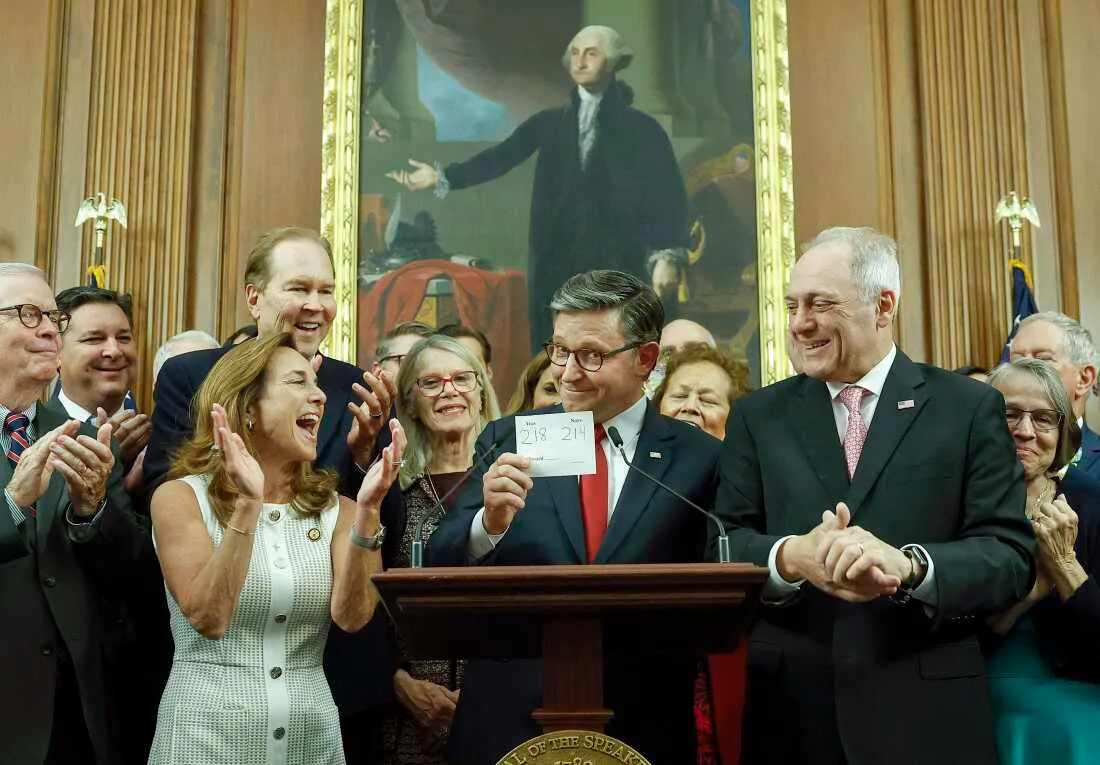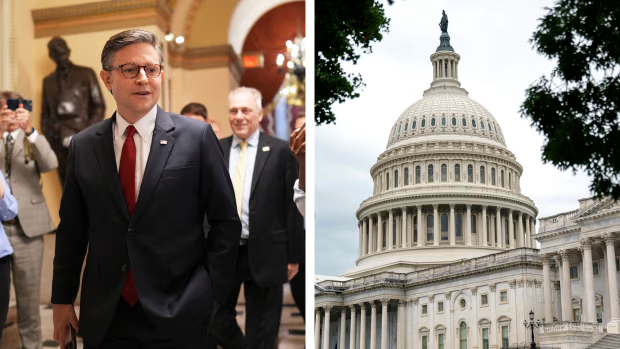
GOP megabill at risk
GOP Megabill at Risk as Party Divisions Emerge and Legislative Clock Ticks
In a politically turbulent climate, the Republican Party's ambitious legislative effort widely dubbed the "GOP megabill" is teetering on the edge of collapse, raising alarms among party leaders and igniting fierce debates on Capitol Hill. This sweeping legislative package, designed to encompass a broad array of conservative priorities from immigration reforms and energy independence to tax restructuring and foreign aid restrictions was envisioned as a landmark victory for Republicans heading into the 2024 election season. Instead, it now stands at risk due to internal fractures, strategic missteps, and mounting opposition from both moderate Republicans and Democrats. What was meant to be a showcase of GOP unity and governance is quickly becoming a cautionary tale about the challenges of managing an ideologically diverse caucus in an increasingly polarized political landscape.
The megabill was conceived as a comprehensive solution that would tie together various Republican legislative priorities into a single, negotiable framework. Backed by House Speaker Mike Johnson and influential Senate Republicans, the bill was expected to include substantial increases in border security funding, limitations on executive regulatory authority, expansions of domestic energy production, and aggressive spending cuts targeting what conservatives label as "wasteful programs." Supporters hoped the bill would send a clear message about Republican values while also providing legislative leverage in budget negotiations. However, as the specifics of the bill emerged, so too did the cracks within the Republican ranks.
One of the central points of contention involves the bill’s immigration provisions, which seek to impose stricter asylum rules, reinstate the "Remain in Mexico" policy, and increase border wall funding. While these measures resonate strongly with the party’s conservative base, a number of moderate Republicans particularly those from swing districts have voiced unease. They argue that the immigration elements are too draconian and risk alienating key voter blocs, including suburban moderates and Latino communities. Some lawmakers have also expressed concern that the megabill’s one size fits all structure doesn’t allow for sufficient flexibility or amendments, leaving them unable to tailor their support to constituent needs.
Economic provisions have similarly drawn fire from within the party. The proposed tax reforms, while favoring small businesses and corporations, also include cuts to certain social welfare programs, including food assistance and Medicaid expansions enacted during the pandemic. This has led to pushback from Republicans representing rural and economically vulnerable regions who worry about the immediate impact on their communities. Meanwhile, a significant faction of the House Freedom Caucus argues that the bill doesn’t go far enough in slashing federal spending and eliminating regulatory oversight, thus withholding their full support. These conflicting demands from different wings of the party have created a legislative bottleneck that leadership has yet to resolve.
Complicating matters further is the looming federal budget deadline. With time running out to avoid a partial government shutdown, the GOP had hoped to pass the megabill quickly and present it as a viable alternative to piecemeal funding resolutions. But the lack of consensus within the party now threatens that timeline. Republican leadership has tried to downplay the internal divisions, with Speaker Johnson insisting that “healthy debate” is part of the legislative process. Yet behind closed doors, tensions are mounting, and the frustration among rank and file members is growing palpable. Some GOP lawmakers are calling for the bill to be split into smaller, more focused proposals to ensure passage an approach that leadership fears will dilute the intended impact and open the door to Democratic amendments.
On the other side of the aisle, Democrats have seized the moment to criticize the bill as extreme and unworkable. Senate Majority Leader Chuck Schumer has already indicated that the megabill, in its current form, would be “dead on arrival” in the upper chamber. Democratic objections focus on the immigration clauses, environmental deregulation, and cuts to social services. Some centrist Democrats have signaled openness to certain economic reforms or energy provisions, but only within a more balanced and bipartisan framework. This has put additional pressure on Republicans to revise the bill or face the possibility of legislative gridlock. President Biden, meanwhile, has signaled that he would veto the current version of the megabill, citing its disregard for vulnerable communities and international commitments.
Amid this legislative chaos, former President Donald Trump has weighed in, further complicating the GOP’s calculus. From his base in Mar a Lago, Trump has urged Republicans to stand firm on the immigration provisions and avoid any compromises that could be interpreted as weakness. His remarks have emboldened some hardliners in the House but alienated moderates who are trying to appeal to a broader electorate in an election year. Trump’s involvement underscores the ideological tug of war within the party and raises questions about who ultimately sets the GOP’s agenda elected leaders in Congress or the party’s unofficial but immensely powerful standard bearer.
The uncertainty surrounding the megabill also holds significant implications for the Republican Party's image ahead of the 2024 elections. Initially intended as a policy blueprint that would contrast sharply with Democratic priorities, the bill has instead highlighted Republican dysfunction. Media narratives have shifted from coverage of the bill’s content to analysis of the GOP’s internal strife, and public confidence in congressional effectiveness continues to erode. Independent voters, who often play a pivotal role in swing states, are paying close attention to how each party handles its legislative responsibilities. Failure to pass the bill or worse, triggering a government shutdown could severely damage Republican credibility at a crucial political juncture.
In conclusion, the GOP megabill, once hailed as a defining legislative moment for Republicans, is now in serious jeopardy. Its ambitious scope, intended to unify the party around a conservative vision for governance, has instead exposed deep ideological fissures and strategic misalignments. The outcome of this internal struggle will not only determine the fate of the legislation itself but also shape the Republican Party’s identity and influence in the lead up to 2024. With time running out and pressures mounting from all directions, the party faces a stark choice compromise to salvage legislative progress or double down on internal battles and risk squandering a critical opportunity for leadership on the national stage.











